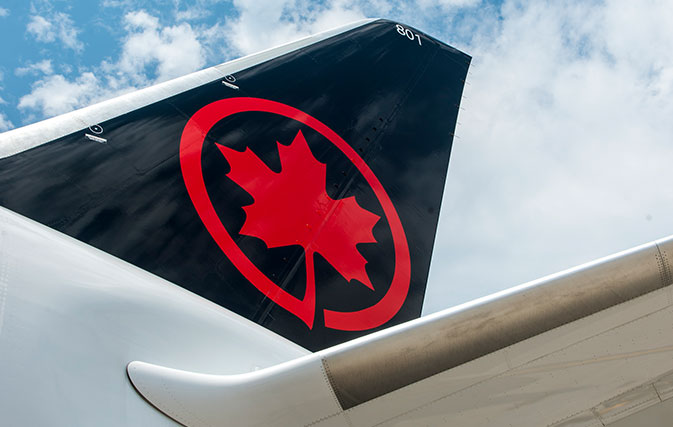MONTREAL — Air Canada President and CEO Michael Rousseau called the past three months “very challenging” for Air Canada, and he thanked passengers for sticking with the airline through recent frustrations with delayed and cancelled flights and other issues.
Announcing the airline’s Q2 2022 results this morning, Rousseau said: “We acknowledge the inconveniences and disruptions some of our customers have faced, and we deeply regret this. This is not business as usual for us. We thank our customers for their understanding and the loyalty they are showing to Air Canada in these unprecedented times.”
Air Canada’s second quarter results include operating revenues of $3.981 billion, a nearly five-fold increase from the second quarter of 2021.
The carrier’s operating loss for the quarter was $253 million, the narrowest quarterly loss since the start of the pandemic. Free cash flow was $441 million, an increase of nearly $2.1 billion from the second quarter of 2021. Air Canada also reported unrestricted liquidity of over $10.5 billion at June 30, 2022.
While the airline industry is on the road to recovery after a turbulent two years, the past several months have been frustrating for many airlines, and their passengers, as demand soared, airport delays worsened and carriers adjusted their schedules many times over.
In June 2022 Air Canada announced “meaningful reductions” to its flight schedule for July and August in an effort to reduce passenger volumes. The move amounted to the cancellation of about 8% of Air Canada’s scheduled flights over the two-month period. The reduction represented about 154 fewer flights per day, on average, primarily on domestic and U.S. transborder routes to and from Toronto and Montreal.
Looking ahead at full year plans for 2022, Rousseau said Air Canada plans to increase capacity by about 150% from 2021 (or about 74% of 2019 levels).
“The past three months have been very challenging for our company, our employees, and customers from an operational perspective. The path to recovery from any serious event is rarely straight and easy. I thank our employees for their incredibly hard work, demonstrated professionalism and commitment as we safely transported over 9.1 million customers in the quarter, nearly 8 million more than the second quarter of 2021 or about 70% of total customers carried in the full year 2021,” said Rousseau.
He added: ”The industry worldwide is facing unprecedented conditions as it emerges from pandemic-related restrictions. The situation is particularly challenging in Canada, where we have gone from a near two-year shutdown of air travel to rebuilding our capacity back to close to 80% of 2019 levels in just a few months.”
Rousseau noted the across-the-board challenges faced by Canada’s airline industry. “Despite meticulous planning and projecting, participants involved in the air transport system are facing significant pressure in restarting. We continue to work together to restore the travel experience to expectations and are encouraged by recent improvements.”
Air Canada’s Q2 wins included advance ticket sales reaching 94% of those in the same quarter of 2019. And operating capacity was 73% of the same quarter in 2019, and despite the lower capacity, passenger revenues were 80% of those generated in the second quarter of 2019, driven by higher yields.
“We expected travel would rebound significantly once restrictions were lifted and prepared accordingly. We entered the peak summer travel period at close to 90% of our pre-pandemic staffing levels, while prudently planning to operate approximately 80% of our pre-pandemic schedule over that period,” said Rousseau.
Air Canada’s Q2 load factor was 80.5%, “representing a significant improvement from the second quarter of 2021 levels but still declined about four percentage points from the second quarter of 2019,” he said.
Alluding to the months-long saga of Canada’s airport delays, Rousseau added that “while many participants play a unique and essential role in the air transport system, we recognize that our customers experience these interconnected efforts as a single journey. We are working closely with our service providers and governments to keep addressing the issues aviation is facing in Canada and globally.”

